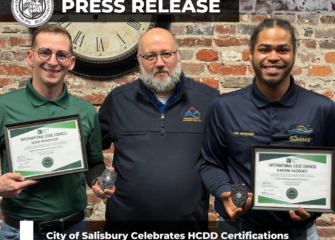
Salisbury, MD – The Salisbury Zoo staff is deeply saddened to announce the death of Peanut, the North American river otter. She was 17 years old – geriatric for an otter – and was diagnosed with congestive heart failure earlier this year.
After months of close monitoring and care, she had a sharp and sudden decline in her health, and on Sept. 20, staff made the hard decision to humanely euthanize her so that her quality of life did not suffer.
Peanut came to the Salisbury Zoo from New Orleans in 2006 with her sister, Pecan, after they were orphaned by Hurricane Katrina as pups in 2005. Pecan was transferred from the Salisbury Zoo on a breeding loan in 2011, and the Zoo welcomed Shiloh, a male otter with whom Peanut shared the majority of her life at the Zoo.
Shiloh died in January 2022 at age 18. The average lifespan of a North American river otter is 8 to 9 years old in the wild, but in captivity, there have been reports of otters reaching their 20s.
Peanut was diagnosed with congestive heart failure in March 2023, with diagnostic imaging provided by CVCA of Annapolis. Since that diagnosis, the Salisbury Zoo veterinary team has worked closely with CVCA and the Zoo’s animal care staff to provide Peanut with the highest level of care, including staff coming in early and staying late to dispense her heart medication and closely monitoring her wellbeing. Peanut was trained by the Zoo’s animal care team to present for voluntary husbandry behaviors, which led to less stressful veterinary observations and procedures.
The Salisbury Zoo’s top priority is the animals’ wellbeing. Every animal in the collection has proactive routine welfare assessments, in addition to reactive assessments that are done after a large life change. In the unfortunate event that an animal’s wellbeing seems to be rapidly declining, staff will start monitoring an animal’s quality of life, which involves more frequent assessments with a strong focus on the animal’s physical and mental health.
The Salisbury Zoo is working on a plan to regain Association of Zoos & Aquariums accreditation, and the current otter exhibit does not meet the standard criteria for AZA. Staff are creating a five-year master plan that will include a new North American river otter exhibit.



